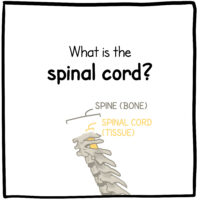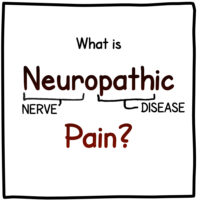In honour of October being national occupational therapy (OT) month, we spoke with a practicing OT and former ICORDian Clarice Kwok, as well as an ICORD PI and OT researcher, Dr. Ben Mortenson, to get the scoop on what OT Read More…
SCInfo Blog

Individualized training for powered wheelchairs results in greater satisfaction with prior set goals
| 0 commentsThe purpose of this study was to determine whether a powered wheelchair user’s ‘goal satisfaction’ improved after five sessions of individualized wheelchair skills training. The researchers also wanted to determine whether or not these changes in satisfaction were maintained 3 months after the training ended. Continue reading
How different variables affect wheelchair tipping probability
| 2 commentsThe tipping or falling of wheelchairs can cause an individual to sustain serious injuries, such as traumatic brain injuries, concussions, and bone fractures. The probability of wheelchair tipping can be heightened or reduced by a variety of factors and it is important that we understand these factors in order to increase wheelchair stability. Continue reading

What is the Spinal Cord? (Web Illustration)
| 2 commentsIn this web illustration we review the anatomy of the spinal cord and explain how spinal cord injuries at the same anatomical level can result in different motor and sensation abilities. To learn even more, visit SCIRE Community’s page on Spinal Read More…

What is Neuropathic Pain? (Web Illustration)
| 1 commentNeuropathic pain is common in individuals with SCI, but what is it and why does it happen? In this web illustration we give a brief answer to both those questions and will leave you ready to do a deeper dive Read More…

What is Orthostatic Hypotension? (Web Illustration)
| 4 commentsOrthostatic hypotension (postural hypotension) is common in individuals with SCI. But what is orthostatic hypotension? What causes it? To help answer these questions, we made a web illustration on this form of low blood pressure. If you’re curious for more, Read More…
The Neuroscience of Pain
| 2 commentsJessica Archibald I am in the first year of my PhD program in Experimental Medicine at the University of British Columbia (UBC). My supervisor, Dr. John Kramer, is a principal investigator with ICORD (International Collaboration On Repair Discoveries), a spinal Read More…
Exercise guidelines for individuals with SCI
| 0 commentsThe authors of this study set out to review existing research to create evidence-based exercise guidelines for improving cardiorespiratory health and cardiometabolic health which are specifically designed for those with SCI. Continue reading
New research could lead to changes in SCI recovery guidelines
| 1 commentSpinal cord perfusion pressure is the difference between mean arterial pressure and cerebrospinal fluid pressure. Continue reading
Wheeling strategies in manual wheelchair users and able-bodied individuals
| 0 commentsWhat is biomechanics? Biomechanics is the science of movement of a living body, including how muscles, bones, tendons, and ligaments work together to produce movement. Continue reading


